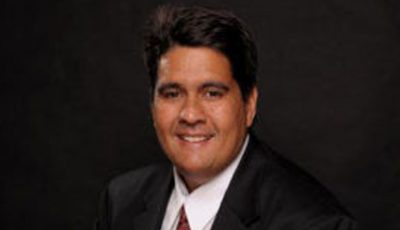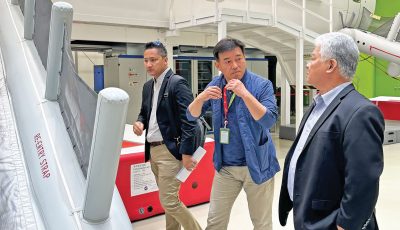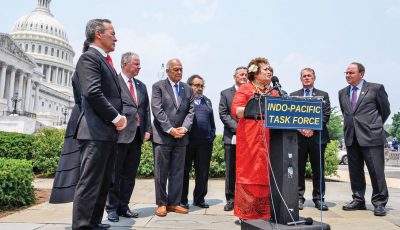Sub-Afrika live
Africa in my geo-social grid is actually not homogenous. I hold a continent called North Africa and the Near East (NANE). It used to be NAME with “ME” as the Middle East. Anatolia (Turkey) was Near East to Europe and that’s how we got stuck with the Middle East name, which should properly refer to Central Asia if the Pacific Coast is the Far East.
Sub-Saharan geography all the way to the Cape of Good Hope is what I normally consider Africa, though the Sabeans of Yemen separated by the Red Sea from kin in Ethiopia-Djibouti-Eritrea-Somalia have more reasons to be together than apart. But I will settle for Sub-Afrika (with a nod to Swahili and Afrikaans on the “k” for now).
With the focus on the Ebola virus exponentially spreading between Senegal and Zaire (DR Congo), and now the two cases reaching U.S. soil, grossly mishandled in Dallas, plus the news that a mysterious virus is breaking out in Colorado and Columbia affecting predominantly girls, give us serious pause. Dengue stalks Guangdong. Something is abroad and it is not just the old standby of air pollution!
The news is that the isotopes from the Fukushima nuclear reactor will be with us for a very long time, its effects indeterminate. China has 21 working reactors listed in 2013, (additional 22 under construction). Humans are definitely evolving and we thought the neural disorder reflected by the increase diagnoses on autism was just a fluke! Nope, isodope! Our neural furniture is being rearranged.
But if the last half of the last century focused on the Pacific, this century will get us familiar with Afrika. A huge Nigerian community lives in Guangzhou where Afrika derives products it sells in the Sub-Afrikan continent; also the source of construction materials brought into Afrika to support public work projects, including high tech rails and highways.
My Afrikan students at SAU had two comments about Chinese business presence in Afrika. First, Chinese folks are not intrusive, out to dominate industry as colonial powers did, nor introduce influence peddling (that corrupted China’s homeland the last century, now the target of the CCP Politburo’s reform), or sway political winds, and definitely do not strut around as a superior race out to civilize natives. They form partnership with a local accountant’s eye set carefully on the ledger. There are aberrations, and I am not one to paint goody-good-shoe on China traders, but the infractions so far are more the exception than the rule.
The second is on race, or more strictly, skin color. Afrikan ladies note that Chinese men do not normally ask them out for a date. There are no qualms among the male asking Chinese ladies who even end up marrying their Afrikan boyfriends and returning to their Afrikan home where their offspring are welcome. “Black is beautiful” may go with the raised fist in UC Berkeley but mestizo blood is preferred in the world, definitely in south L.A. and even in Afrika. Chinese families defensively hide a Sino-African child around, preferring that they be raised elsewhere. China is extremely enamored with staying “white” (yellow is for countryside folks!).
Stokely Carmichael, SNCC’s honorary chair, was born in Trinidad, married Guinean singer Mariam Makeba, died at 57 of cancer he claimed the FBI gave him (he was on J. Edgar Hoover’s famous list), was no African “black,” nor is Harry Belafonte, Jesse Jackson, or the “black” President, Barrack Obama. Naomi Campbell did not become famous flashing her oral gleam from black skin! The color scheme on skin color is a cultural anthropology term associated with Ur-images, and has nothing to do with ethnic purity, or, yes, even color of one’s skin.
There is nothing homogenous about Sub-Afrika from the Sahara to the Cape. The savannahs of the East are different from the rainforests of the West; the Kalahari is abundant with life while the dunes of the Sahara is chaste. The Congo basin is host to anything alive in the planet and the Rift’s highlands and its lakes captivates a struggling solitary soul.
At Afrika’s southern Cape, on the Atlantic side is Cape Town and on the Indian Ocean side, East London. The Boers may have prevailed against the empire but the Brits left their names.
Afrika is blessed with hardly a trace of local nuclear isotopes (South Africa has two nuclear reactors, and Morocco has one under construction) but that will change soon with the U.S. being the majority patent holder and user of nuclear energy technology knocking at its doors. But first, the oil. World business is upset because the Ebola negatively impacts African gas and oil. Come again? The pregnant girl that the Texan guy helped looked emaciated. They are starving in many parts of West Africa, and we worry about the oil?
We really need to establish alternative energy technologies fast. This is Zhimu Ban Da 0-2-10 (ala 007), agent for solar panels, wind turbines, steam and hydroelectric generators, with maritime Silk Route license; can sail, will travel!



























